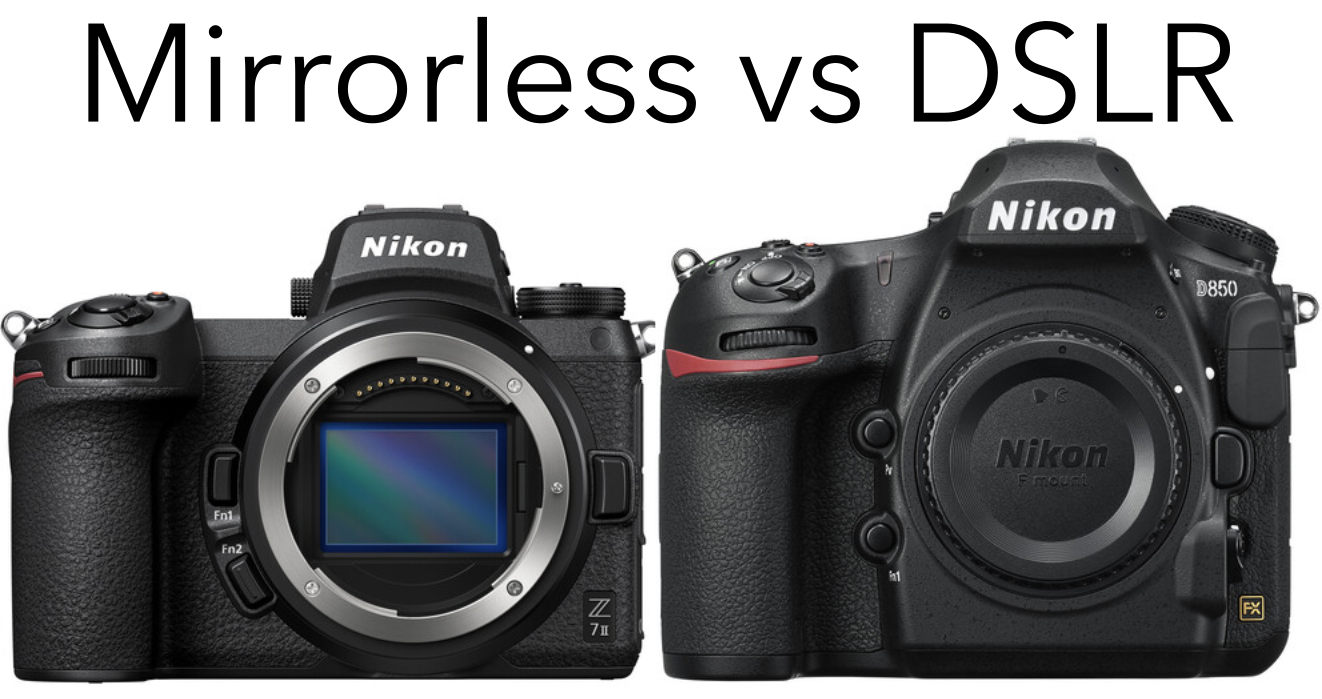DSLR vs. Mirrorless: Which Camera is Right for You?
Comparing DSLR vs. mirrorless cameras? Find out which one suits your needs, whether you're a beginner, traveler, or professional photographer.

If you're in the market for a new camera, you've probably heard the ongoing debate: DSLR vs. mirrorless. With advancements in technology, mirrorless cameras have gained massive popularity, leaving many photographers wondering if they should ditch their DSLRs. But is one truly better than the other? Well, it depends on your needs, preferences, and the type of camera fotografica you use for your photography style. Let's dive into the differences and find out which camera suits you best.
Understanding the Basics
What is a DSLR?
A DSLR (Digital Single-Lens Reflex) camera uses a mirror mechanism to reflect light into an optical viewfinder. When you press the shutter, the mirror flips up, allowing light to hit the image sensor, capturing the photo. This traditional design has been the standard for professional photography for years, known for its reliability and robust features.
What is a Mirrorless Camera?
A mirrorless camera, as the name suggests, lacks a mirror. Instead of an optical viewfinder, it uses an electronic one or simply a digital screen to preview the shot. Without the bulky mirror mechanism, mirrorless cameras tend to be lighter and more compact, making them a favorite among travelers and vloggers.
Size and Portability
DSLR: A Bulkier Choice
DSLRs are generally larger and heavier due to their complex internal mechanics. This added weight can be a downside if you’re traveling or shooting for extended periods. However, the bulk often provides a more ergonomic grip, which some photographers prefer.
Mirrorless: Lightweight and Compact
Mirrorless cameras are designed to be smaller and lighter, making them easier to carry around. If you love street photography, travel often, or need a camera that won’t weigh you down, a mirrorless system could be the better choice.
Autofocus Performance
DSLRs: Reliable but Slower in Live View
DSLRs traditionally use phase-detection autofocus, which is fast and effective, especially in well-lit environments. However, when using the LCD screen (Live View mode), autofocus can be slower compared to mirrorless cameras.
Mirrorless: Fast and Precise
Mirrorless cameras utilize on-sensor phase detection or contrast detection, making autofocus faster and more accurate, particularly for video and fast-moving subjects. Many mirrorless cameras also include AI-driven eye-tracking technology, ensuring sharp focus on faces.
Image Quality and Sensor Performance
Do Mirrorless Cameras Have Better Image Quality?
Both DSLR and mirrorless cameras offer excellent image quality, as they often use similar sensors. Full-frame, APS-C, and Micro Four Thirds sensors are available in both types, so your image quality will depend more on the sensor size and lens quality than whether the camera has a mirror.
Low Light Performance
Since sensor technology is similar, both DSLRs and mirrorless cameras perform well in low light. However, mirrorless cameras sometimes have a slight edge due to advanced image processing and superior autofocus in dim conditions.
Battery Life: Which Lasts Longer?
DSLRs: Built for Endurance
DSLRs generally have longer battery life because they rely on an optical viewfinder rather than a power-hungry electronic display. A DSLR can easily last for a full day of shooting on a single charge, making it a dependable choice for professionals.
Mirrorless: Power-Hungry
Since mirrorless cameras use electronic displays, they consume more battery power. While newer models have improved battery efficiency, you'll likely need to carry extra batteries for longer shoots.
Lens and Accessories Compatibility
DSLRs: A Vast Selection
DSLRs have been around for decades, meaning they have access to a wide range of lenses and accessories. Whether you need a specialty macro lens, a tilt-shift lens, or an ultra-wide-angle option, you’ll find plenty of choices for both Canon and Nikon DSLRs.
Mirrorless: Growing but Limited
Mirrorless cameras are catching up, and many manufacturers now offer extensive lens options. However, if you're looking for very specific lenses, DSLRs still have the upper hand. Some mirrorless cameras can use DSLR lenses with adapters, but this may affect performance.
Video Capabilities: Which is Better?
DSLRs: Good but Outdated
While DSLRs can shoot high-quality video, they generally lack advanced autofocus and stabilization features found in mirrorless cameras. If video is a major part of your work, a DSLR might feel limiting.
Mirrorless: The Future of Video
Mirrorless cameras dominate the video market. With features like 4K and 8K recording, in-body image stabilization, and real-time autofocus tracking, they’re the go-to choice for content creators and videographers.
Price and Value
Are DSLRs More Affordable?
In many cases, DSLRs are more budget-friendly because they’ve been on the market longer. You can find high-quality used DSLRs and lenses at lower prices compared to their mirrorless counterparts.
Mirrorless: Worth the Investment?
While mirrorless cameras can be more expensive, they offer cutting-edge technology. If you want future-proof features and are willing to invest in new gear, a mirrorless system is a great choice.
The Verdict: Which One Should You Choose?
Choose a DSLR If:
You prefer a longer battery life, a comfortable grip, and access to a wider range of affordable lenses. DSLRs are great for beginners and professionals who need a reliable camera without worrying about constant battery changes.
Choose a Mirrorless Camera If:
You prioritize portability, cutting-edge autofocus, and superior video features. Mirrorless cameras are perfect for travel, vlogging, and professionals who want the latest technology in a compact form.
Final Thoughts
At the end of the day, both DSLRs and mirrorless cameras have their strengths. The right choice depends on your personal needs and photography style. If you're a seasoned photographer who loves the feel of a traditional camera, a DSLR might still be your best bet. However, if you crave innovation, portability, and superior video performance, a mirrorless camera is the way to go. Regardless of your decision, both camera types can help you capture stunning images—so go with what feels right for you!
What's Your Reaction?




















